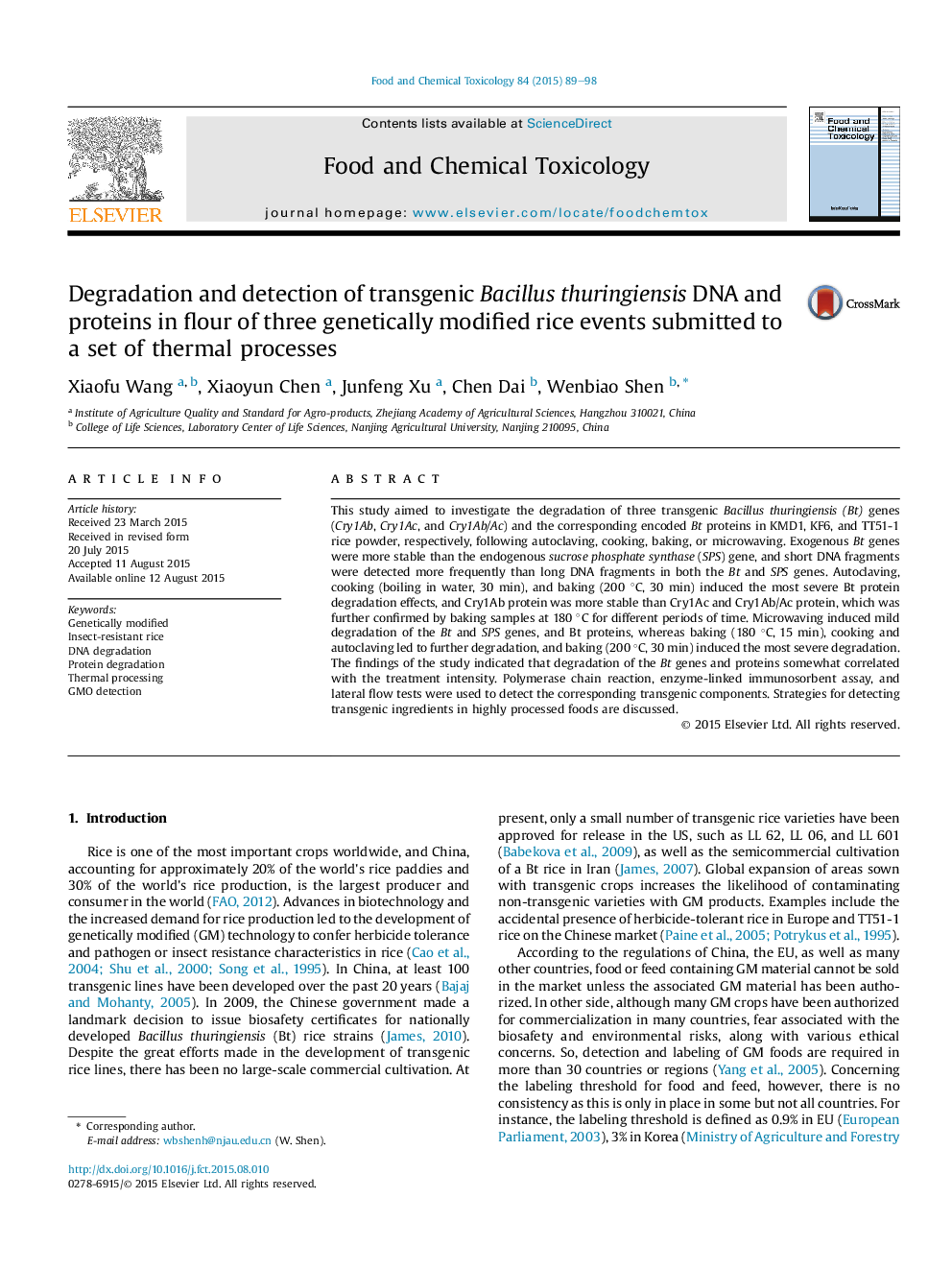| Article ID | Journal | Published Year | Pages | File Type |
|---|---|---|---|---|
| 5849512 | Food and Chemical Toxicology | 2015 | 10 Pages |
Abstract
This study aimed to investigate the degradation of three transgenic Bacillus thuringiensis (Bt) genes (Cry1Ab, Cry1Ac, and Cry1Ab/Ac) and the corresponding encoded Bt proteins in KMD1, KF6, and TT51-1 rice powder, respectively, following autoclaving, cooking, baking, or microwaving. Exogenous Bt genes were more stable than the endogenous sucrose phosphate synthase (SPS) gene, and short DNA fragments were detected more frequently than long DNA fragments in both the Bt and SPS genes. Autoclaving, cooking (boiling in water, 30 min), and baking (200 °C, 30 min) induced the most severe Bt protein degradation effects, and Cry1Ab protein was more stable than Cry1Ac and Cry1Ab/Ac protein, which was further confirmed by baking samples at 180 °C for different periods of time. Microwaving induced mild degradation of the Bt and SPS genes, and Bt proteins, whereas baking (180 °C, 15 min), cooking and autoclaving led to further degradation, and baking (200 °C, 30 min) induced the most severe degradation. The findings of the study indicated that degradation of the Bt genes and proteins somewhat correlated with the treatment intensity. Polymerase chain reaction, enzyme-linked immunosorbent assay, and lateral flow tests were used to detect the corresponding transgenic components. Strategies for detecting transgenic ingredients in highly processed foods are discussed.
Related Topics
Life Sciences
Agricultural and Biological Sciences
Food Science
Authors
Xiaofu Wang, Xiaoyun Chen, Junfeng Xu, Chen Dai, Wenbiao Shen,
